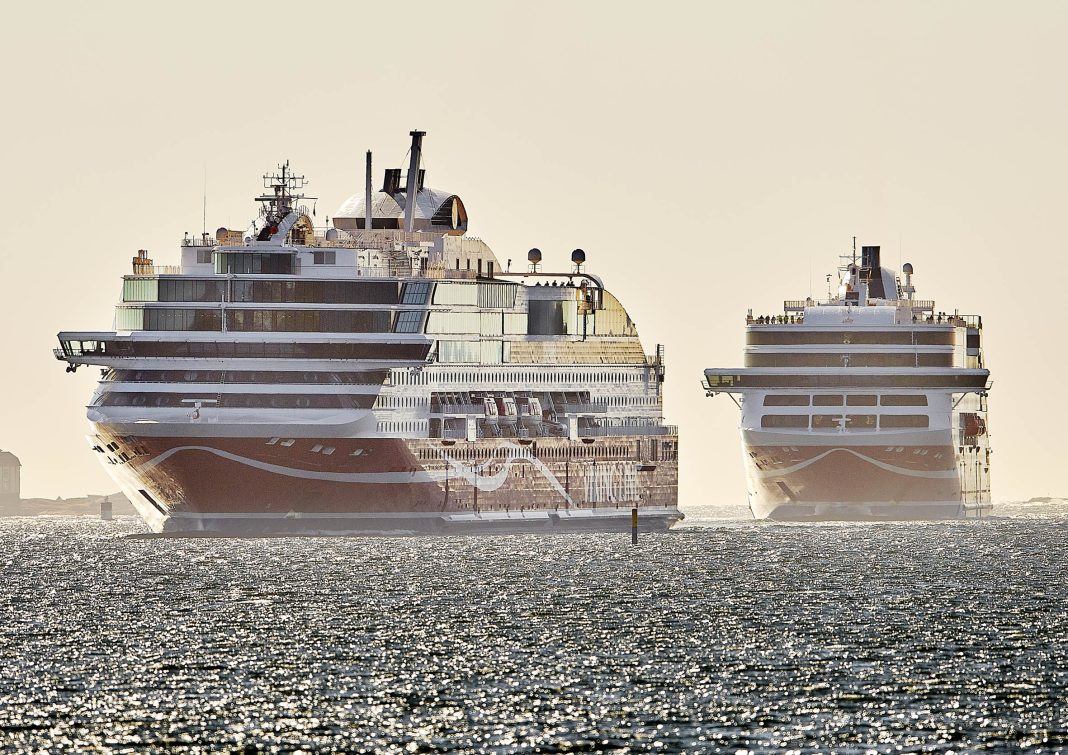Viking Line’s focused environmental work, which began in the 1980s, once again shows the way for the entire maritime shipping industry.
The company has started to offer passengers on its Turku-Åland-Stockholm route the option of purchasing renewable biofuel in proportion to the amount of fuel used for their journey and thus reduce the emissions from their travel by up to 90 per cent.
European biogas, produced from waste materials, is being delivered by the Nordic energy company Gasum to the climate-smart vessels Viking Glory and Viking Grace.
Starting on 21 June, Viking Line’s passengers on the Turku-Åland-Stockholm route can purchase biogas in proportion to the amount of fuel used for their journey.
On a cruise between Turku and Stockholm, the additional price is less than 5 euros. At that price, passengers reduce their carbon footprint by up to 90 per cent compared to a trip where liquefied natural gas (LNG) is used. The amount of liquefied biogas (LBG) purchased is based on average fuel use per passenger.
Viking Glory and Viking Grace are climate-smart vessels that were prepared to run on biogas and synthetic fuels produced from renewable energy in the planning phase.
Viking Glory was launched in service in 2022 and Viking Grace in 2013. Normally, the vessels run on liquefied natural gas, which is also a low-emission energy source compared to oil-based fuels.
Nitrogen oxide emissions from LNG are 85 per cent lower than when using oil-based fuels, which helps counter eutrophication (nutrient enrichment) and acidification of the Baltic Sea.
For humans, practically no sulphur emissions or particulate matter is generated using the fuel. The switch to biofuel in turn will especially reduce greenhouse gas emissions.


